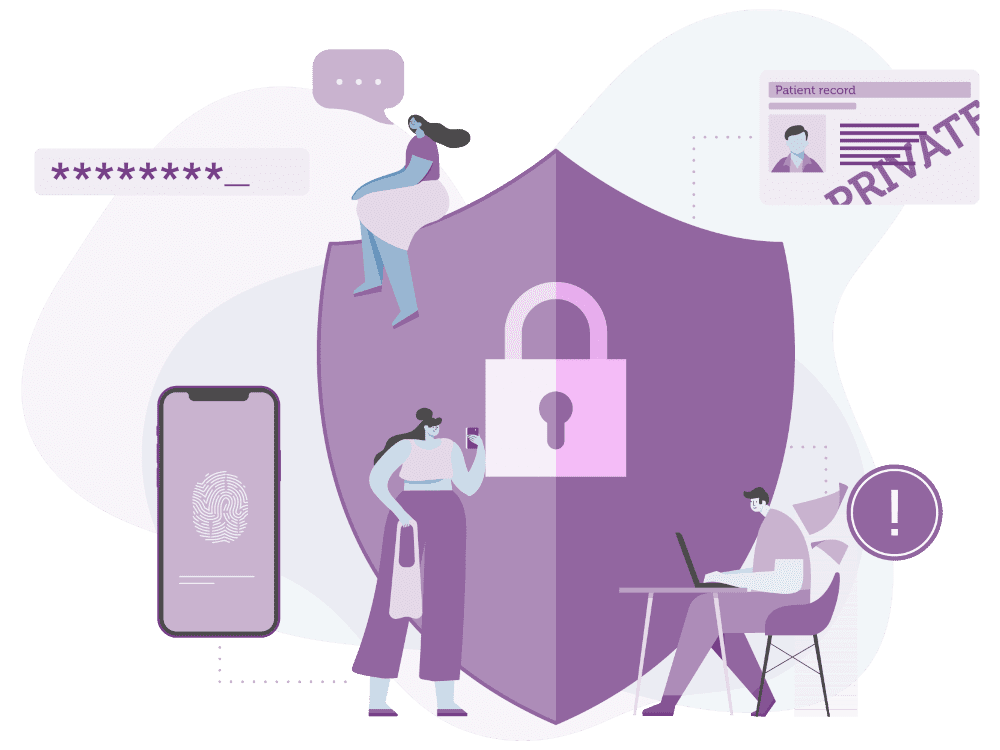
Understand how effective communication helps people achieve their personal outcomes
Introduction

Care workers across Scotland are committed to focusing on the outcomes that are important to children and adults using care and support services.
In this section we will explain what personal outcomes are and show you how effective communication can help people to identify and achieve them. The knowledge you gained about communication in the first topic will help you as you explore the power of outcomes-focused approaches in care.
1. What are personal outcomes?
When we work together and focus on the right things we can achieve much more.
Read the quote below for an example. Iris was 82 when she broke her leg in a fall. She was returning home from hospital and wanted the care workers to know about something which is very important to her: one of her personal outcomes.
I want help with getting my confidence back in the kitchen. Home cooking makes a house into a home and the smell of soup on the stove makes me feel I am making a home for my husband and me.
Iris
Here are some other examples of what people’s personal outcomes might relate to (but, like Iris, the way they describe their own outcomes will be unique and based on what matters to them). There are many more things you could add to this list.

- Seeing family, friends and other people
- Being listened to
- Improving physical strength
- Having people to rely on
- Gaining skills
- Making a contribution
- Having things to do
- Belonging to a community
- Feeling safe
The idea of personal outcomes is important in Scottish law and policy. An important piece of law which talks about personal outcomes is the Self-directed Support (Scotland) Act 2013 which you can learn more about in the Promoting Rights and Choices resource (available from the main menu). Everyone working in care in Scotland should learn about what it means to promote personal outcomes. We can all play our part in improving care and support.
Click on the rows below to hide or reveal more information about personal outcomes. You will also find activities and further resources.
Here are two good reasons to focus on personal outcomes.
- We can work together much better if we have a shared understanding of what’s important to the children, young people or adults we support.
- By focusing on what’s most important to people we can help them to significantly improve their health and wellbeing.
It might not always be possible to do everything that people ask of us, and this can be frustrating for care workers who want to do all they can. Care workers might face common restrictions, for example only having a short time to spend with someone each day.
However, finding out what’s important can help in any situation to shape support around a person’s priorities. Using this approach can even inspire care workers, together with the people they support, to find creative ways to work towards goals which might seem difficult in the beginning. Finally, it can also help care workers to communicate concerns if someone’s care isn’t as good as it needs to be.
2. How can effective communication support someone to achieve their outcomes?
For care workers, a personal outcomes approach involves a number of communication skills.
Most importantly, it requires good conversations. This includes active listening, a skill you learned about in the first section of this resource.
The approach also requires skill in writing down and recording a person’s outcomes so that they can be used in a meaningful way, for example to shape their care, highlight progress and make changes when things aren’t working.
Having good conversations with the people you support will help you build stronger relationships. You’ll be in a better position to work together and find the best way forward.
Changing the conversation: what’s the matter, to what matters to you?

The above illustration shows two common approaches to caring conversations. Click on the two boxes to reveal information about a weaker approach (what’s the matter?) and a stronger, outcomes-focused approach (what matters to you?)
What’s the matter?
What matters to you?
There is nothing more powerful than taking a moment to connect on a personal level. That instant human connection matters more than anything else. ‘What Matters to You?’ conversations are deceptively simple, some would argue overly simple, but they are a start. Try it, you might be surprised what you learn.
Professor Jason Leitch, National Clinical Director for NHS Scotland
More ideas to support good conversations
Sometimes people might find it difficult to talk to you about their lives and what’s important to them. There are lots of potential reasons, for example:
- someone might be a very private person or they may be shy, and you should respect this
- children being cared for may be very young, which can affect their understanding, or may be nervous about speaking with professionals
- people may have a disability or illness which makes it more difficult to find the right words, or to speak or write down what they want to say.
In the first section of this resource you learned about creative ways to communicate, like art, life story work and music. These ideas could all be used to support people to communicate what’s important to them when they find it difficult to talk or write things down.
Here are some other examples from different settings which help people communicate what matters. They show that the personal outcomes approach is not just used in care services but also in hospitals and children’s hearings.
Getting to know me: a document for people with dementia in hospital
Children’s Hearings: communication tools and advocacy for children and young people
Go further
Here’s a video from the Care Inspectorate made with young inspection volunteers. It can help you understand the perspectives of young people in care and why it’s important that inspections take account of what matters to them.
End of section

You’ve now completed the second section of this resource. Scroll down to find the final section.
We encourage you to take some notes on the MyLearning app as you go along of the things you find interesting, or answers to some of the activity questions. This could help you later as you prepare to start your career.
More sections in this resource
This resource has three sections to work through, all related to communicating effectively in care settings. Each of the sections includes a number of topics.

Identify communication skills in a real care service
In this final section you’ll learn more about effective communication in the workplace. You’ll have a chance to look around a real care service in Scotland and identify some important communication activities and the skills which support them.










